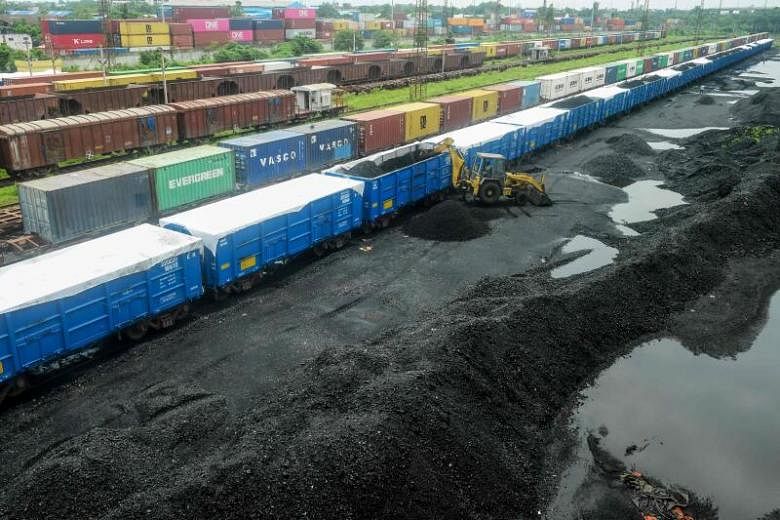India is set to hold its first commercial coal mine auctions in October, and is accepting bids with technical specifications. In the next phase, shortlisted firms will submit financial bids. But the coal ministry has already had to review the initial list of 41 coal blocks because of opposition from states with the largest coal reserves.
The government-owned Coal India has a seven-decade monopoly on coal mining and it accounts for 80 per cent of the coal mined in the country. Private companies could mine coal for their own use, but not for sale to others.
Prime Minister Narendra Modi announced on June 18 a policy to allow foreign investors, non-mining entities and large miners to mine coal commercially, without restrictions on end-use or price.
After initially allowing 100 per cent foreign direct investment, the coal ministry issued a notification, following border clashes with China in Ladakh last month, asking foreign investors to seek approval before participating.
Coal minister Pralhad Joshi said that despite having the world's fourth-largest coal reserves, India imports around 235 million tonnes of coal a year. The government wants to replace this with domestic supply.
The 41 new blocks have 225 million tonnes of coal, and their commercial auction is expected to raise 330 billion rupees (S$6.1 billion). The coal sites are spread across five states.
As soon as auctions were announced, the government of Jharkhand, a forested central Indian state with nine of the 41 coal blocks, challenged the decision in the Supreme Court.
The state has the largest coal reserves in the country and a quarter of its population is from indigenous communities.
Jharkhand's legal suit claims the federal government's action is "unilateral, high-handed, arbitrary and illegal", and that it is inappropriate to hold auctions during the Covid-19 pandemic when the state machinery should be working to "alleviate the problems of citizens".
Six of Jharkhand's nine allotted coal blocks fall in areas with large indigenous populations who have special constitutional protections. Auction of mines in these areas would impinge on their rights and "lead to large-scale displacement", the state government said.
The Maharashtra state government also objected to the inclusion of a coal mine that lies within a tiger reserve. In mid-July, the central government withdrew this coal block from the list.
Also, nine village leaders from another small coal-rich state, Chhattisgarh, wrote to Mr Modi demanding a stop to the auction of coal blocks in the biodiversity-rich 420,000-acre Hasdeo Arand forest. After a meeting with state government officials last month, Mr Joshi said five blocks in eco-sensitive areas would be removed from the auction list, and three others added.
Coal-fired plants make up 55 per cent of India's installed power capacity, and account for 80 per cent of all industrial emissions. Despite a push for renewable energy to make up 40 per cent of the energy mix by 2040, experts say the auctions send a strong signal about India's dependence on coal.
They note that global investors have been exiting coal mining in recent years, and many financial institutions have instituted coal policy restrictions due to pressure from climate change activists. Moreover, India's coal has a lower calorific value and the ash content can go as high as 35 per cent.
An official in Jharkhand's coal department said it was concerned that "the prevailing poor economic conditions under the pandemic" could also lead to lower bids from companies and a significant loss in revenue for the state, but Mr Joshi has dismissed these fears as "unfounded".

